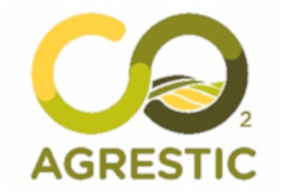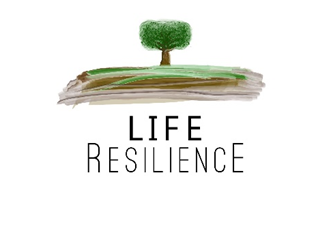
LIFE RESILIENCE
Prevention of X. fastidiosa in intensive olive & almond plantations applying productive green farming practices
The LIFE RESILIENCE project pursues sustainable solutions aimed at reducing the propagation capacity of Xylella fastidiosa (XF) in intensive olive and almond plantations through two objectives. The first objective is to select potential new varieties resistant to XF. These new genotypes will constitute cultivation alternatives for currently affected areas and an extremely valuable resource in the event of a hypothetical advance of the disease. The second objective is to determine a model of sustainable cultivation practices, which include natural vector control methods, that will help prevent the spread of XF, making intensive plantations less susceptible to attack by pests and diseases.
More information: http://www.liferesilience.eu/
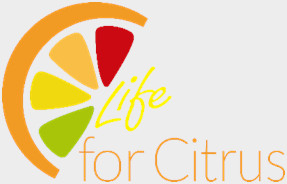
LIFE Vida for Citrus
Development of sustainable control strategies for citric under threat of climate change & preventing entry of HLB in EU
LIFE Vida for Citrus is a European project that was born with the purpose of protecting the citrus sector by developing plants resistant to the disease, and with the idea of implementing environmentally friendly cultural practices that limit the development of the vector that transmits the disease and that contribute to reducing the carbon footprint and climate change.
LIFE Vida for Citrus also seeks to develop a tool for the rapid detection of the disease, which would greatly facilitate the control of the disease.
More information: https://lifevidaforcitrus.eu/

4CE-MED
Camelina: A Cash Cover Crop Enhancing water and soil conservation in MEDiterranean dry-farming systems
4CE-MED project aims at developing Mediterranean innovative, diversified and resilient farming systems not competing for land with actual food chain, following a participatory approach for identifying smallholder needs, while planning, monitoring and evaluating the project actions.
More information: https://www.4cemed.eu/

LIFE PASTORALP
Pastures vulnerability and adaptation strategies to climate change impacts in the Alps
PASTORALP is a project co-financed by the LIFE program aimed at reducing the impacts of climate change on alpine pastures, increasing their resilience and decreasing their vulnerability.
The main specific objectives are:
- identify and test adaptation strategies.
- increase the awareness of local pastoral communities on climate change issues (capacity building).
- promote efficient and sustainable management strategies for alpine pastures, taking in account also socio-economic issues.
The final output will be the deployment of platform tools facilitating the adoption of adaptation strategies in the two parks (Gran Paradiso National Park in Italy and Parc National des Ecrins in France), aligned with the objectives of the ‘Climate change adaptation priority area’ of the EU. The strategies and tools developed in this work could be easily exploited in other pastoral areas across Western Alps.
More information: https://www.pastoralp.eu/

H2020: AGROFOSSILFREE
Strategies and technologies to achieve a European Fossil-energy-free agriculture
The main goal of this project is to create a framework under which critical stakeholders will cooperate to evaluate and promote the currently available FEFTS in EU agriculture.
FEFTS refer to the tools that are required to address cleaner and more efficient energy production and use in agriculture and they are categorised based on the Clean Energy Production and Energy Efficiency Improvement, among an auxiliary category related to Carbon Sequestration.
The project will contribute to the High Level EU Strategies, such as the EU Green Deal and the Farm to Fork strategy, as it aims to decrease the use of fossil energy in agriculture while maintaining yield and quality of the end-product.
More information: https://www.agrofossilfree.eu/es/home-espanol/
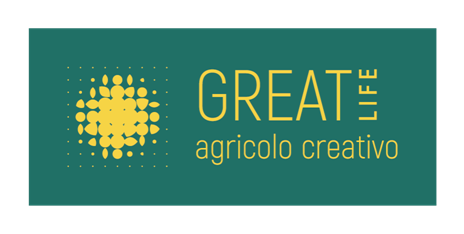
GREAT LIFE
Growing Resilience AgricolTure - Life
The GREAT LIFE (LIFE17 CCA / IT / 000067) is a project co-financed by the European Union that was born within the LIFE program for adaptation to climate change. The project is coordinated by the Department of Agricultural and Food Sciences of the University of Bologna in collaboration with Kilowatt, Alce Nero, Life Cycle Engineering and the Municipality of Cento.
The overall objective of GREAT LIFE is to implement an innovative and integrated approach, from crops to market, to tackle the effects of climate change on agricultural activities in the Po Valley (Emilia-Romagna) and in Italy as a whole. The project aims to demonstrate how by replacing high-impact crops sensitive to climate change (maize) with resilient crops (sorghum and millet) produced with sustainable techniques, it is possible to reduce water consumption, support farmers' income, increase biodiversity and access to healthy food. Both at a national and European level, GREAT LIFE intends to raise awareness on the contribution of food consumption to adaptation and resilience. It wants also to encourage the introduction of the "resilience" within the public criteria that govern the policies of Green Public Procurement (GPP) and the purchases of public canteens. GREAT LIFE approach looks at the whole value chain, certain that, for a successful achievement of the above stated impacts, it is necessary to simultaneously stimulate demand and supply, boosting the still niche market of resilient food.
More information: https://great-life.eu/
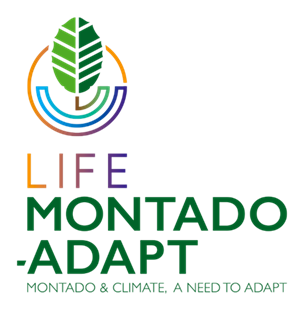
LIFE-MONTADO-ADAPT
Montado & Climate; a need to adapt
LIFE Montado-Adapt is a project to promote the adaptation of the Montado/Dehesa system to climate change in Portugal and Spain, increasing the sustainability at an economic, social and environmental level.
The Montado (Portugal) / Dehesa (Spain) is an agrosilvopastoral and multifunctional system typical for southern and central Portugal and Spain. The system has recognized values at cultural and economic level but is also seen as a biodiversity hotspot.
The impact of climate change on Montado/Dehesa areas result in an increase of uncertainty, of extreme events (heat waves, drought, and heavy precipitation), concentration of rainfall days, reduction of frozen days etc. The adaptation strategy of Life Montado-Adapt project is based on increasing the resilience of the Montado/Dehesa system by creating sustainable farm activities. This will stimulate the rural economic role, avoid further migration and decrease the pressure on the environment.
We supported the owners and managers of Montado/Dehesa lands in the regions of Alentejo (Portugal) and Extremadura and Andalusia (Spain), to implement an Integrated Montado management system. It represents a diversification strategy for the farms that takes into consideration not only the characteristics of endogenous aspects of each property, but also the expected climatic conditions and market opportunities.
There was implemented 12 pilot areas in the project, and we are currently replicate in to much more Montado/Dehesas owners.
More information: www.lifemontadoadapt.com
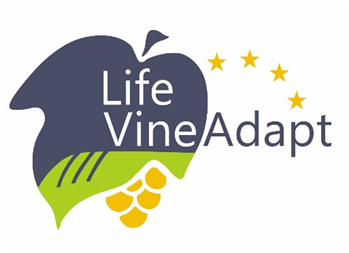
LIFE VINEADAPT
Sustainable Viticulture for Climate Change Adaptation
Viticulture in Europe has to deal with the effects of climate change. Increasing droughts in summer, a high risk of erosion due to heavy rainfall and the immigration of new pests require innovative solutions. The LIFE VineAdapt project aims to help improve the resilience of vineyard ecosystems to climate changes. Increasing biodiversity and adapting vineyard management are crucial for this. LIFE VineAdapt has a duration of 5 years. Until June 2025, eight practice and research partners from Germany, France, Austria and Hungary will focus on five work packages. They will prove that the establishment of natural vegetation in vineyards is possible under different geographical and climatic conditions and will have positive biotic and abiotic effects. Public relations and knowledge transfer measures will help to apply the project results in practical viticulture.
More information: https://www.lgsa.de
https://www.life-vineadapt.eu/en/aktuelles
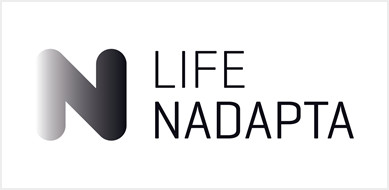
LIFE-IP Nadapta-CC
Towards an integrated, coherent and inclusive implementation of Climate Change Adaptation policy in a region: Navarre
The international commitments assumed by Navarra to deal with the climate emergency through the Climate Change Roadmap (CC) imply the development of mitigation measures to reduce greenhouse gas emissions, and adaptation measures to reduce the impact of climate change (CC) on the territory. To this end, the LIFE NAdapta project has been launched to increase the resilience of Navarra around 6 work areas: CC monitoring and adaptation of the local environment, adaptive management of water, forests, agriculture and livestock, health, and infrastructure and landscape.
In addition, the project includes actions at a transversal level, such as the mobilization of complementary funds, training (capacity building), the evaluation of environmental and socioeconomic impacts, and communication (dissemination, networking, transfer, replication).
More information: https://lifenadapta.navarra.es/es/

LIFE ADA
ADaptation in Agriculture
The project aims to increase the capacity of farmers and producer organizations (in wine, fruit and vegetable and dairy sectors) to implement adaptation strategies to climate change. To achieve this goal, a public-private partnership has been set up between insurance, public administration (regions), scientific institutes and aggregated forms of producers. This group aims to transfer knowledge on climate scenarios and risk management, as well as measures for adaptation to climate change; to build adequate tools to support the decision-making process and in the definition of adaptation plans at farm and supply chain level; to define a regional policy strategy to support farmers’ adaptation plans; to promote an innovative approach in order to maintain the long-term insurability of farmers despite the increase in catastrophic and systemic risks.
More information: https://www.lifeada.eu/en/

LIFEisLIGHT
LIFEisLIGHT project aims at demonstrating the environmental, economic, and social performance of an innovative technology for plant protection against fungi based on UV-C flashes in 3 different EU Member States (France, Spain and Italy). This general objective can be split in 4 specific objectives:
- REDUCING by at least 50% the use of fungicides in vineyards to limit environmental and health impacts
- OPTIMIZING the UV-C sources
- DEEPENING knowledge on plant reaction to UV-C flashes
- EQUIP a total of 15 commercial wine farms with the prototypes developed in the scope of LIFEisLIGHT (France, Spain, Italy)
The project is led by UV Boosting, a French agro-equipment manufacturer, University of Bordeaux, University of Toulouse III and Familia Torres, a historical Spanish wine company.
More information: http://lifeislight-project.com/
This post is also available in: Español (Spanish)


